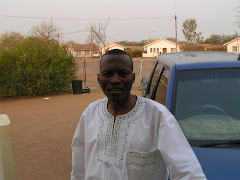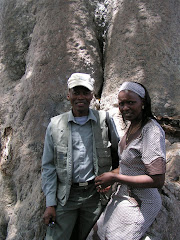Here's what meaningful Child Participation means...
Child participation involves encouraging and enabling children to make their views known on the issues that affect them. Participation is all about adults listening to children, to their entire multiple and varied ways of communicating. It ensures children’s freedom to express their views openly without fear of intimidation.
What child participation should be.
Child participation must be authentic and meaningful. It must start with children and young people themselves, on their own terms, within their own realities and in pursuit of their own visions, dreams, hopes and concerns. Authentic and meaningful child participation requires a radical shift in adult thinking and behavior — from an exclusive to an inclusive approach to children and their capabilities.
Article 12 of the Convention on the Rights of the Child provides that States Parties shall assure to the child who is capable of forming his or her own views the right to express those views freely in all matters affecting the child, the views of the child being given due weight in accordance with the age and maturity of the child.
For this purpose, the child shall in particular be provided the opportunity to be heard in any judicial and administrative proceedings affecting the child, either directly, or through a representative or an appropriate body, in a manner consistent with the procedural rules of national law.
Child Participation in Botswana includes among other things:
Commemoration of the Day of the African Child (June 16).
Children’s Forum (June 2008)-160 children from 16 districts met in Tlokweng to make an input into Children’s Bill.
Section 4 (2) of the Adoption of Children Act provides that a court to which application for an order of adoption is made shall not grant the application unless it is satisfied-
(e) that the child, if over the age of 10 years, consents to the adoption.
Challenges
Some of the challenges that are going to be addressed through the reviewed Children’s Act of 2009 are as follows:
Under the formal & informal foster care consent of the child is not always sort.
Placement of children in places of safety or child welfare institutions does not take into account their consent.The current Children’s Act (1981) & Children in need of care Regulations (2005) do not clearly spell out child participation.
Customary law does not encourage child participation in kgotla meetings (The CRC, Legislative Reform, and Customary Law, 2004). Child participation is not structured (Children only meet as and when need arises). Some of the activities that encourage child participation are:
4Bs
Youth Rallies
Girl guides & Boy Scouts
Young People’s Convention.
Youth Parliament.
Currently these are either not effective or non existent. They need to be strengthened.
Way forward
For the current & future children we believe that:
Every child who is of such age, maturity and level of understanding should be able to participate in decisions which have a significant impact on that child’s life & shall have a right to do so.
The reviewed Children’s Act proposes structures such as National Children’s Council, Children’s Consultative Forum & District Child Well-being committees to ensure child participation. Support the formation and work of child rights clubs in schools and communities
Subscribe to:
Post Comments (Atom)











No comments:
Post a Comment